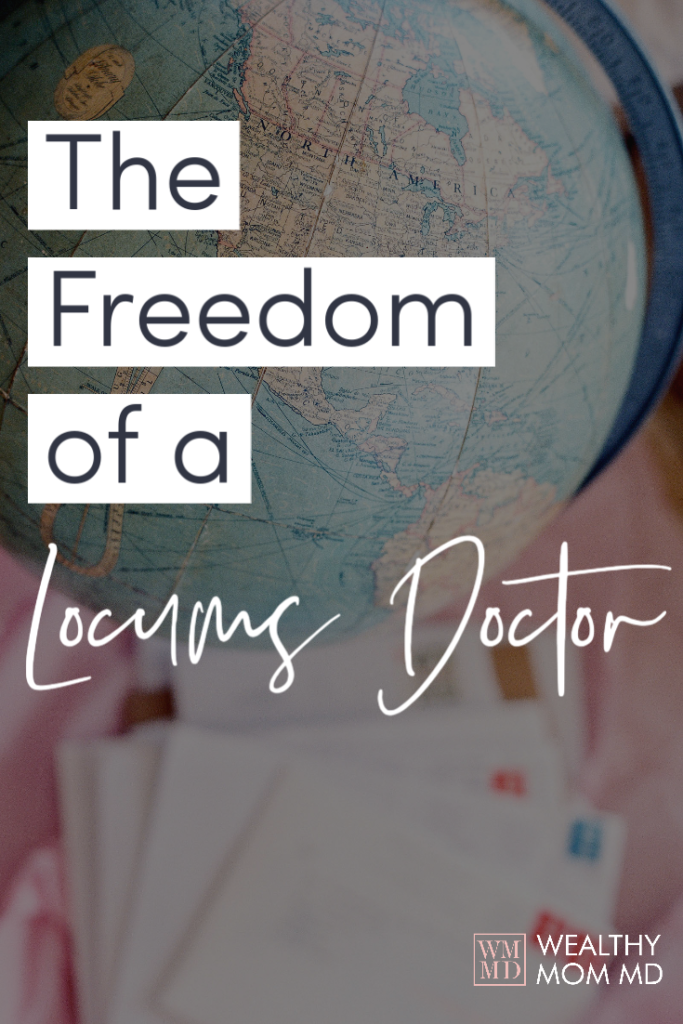Money
 One of the biggest barriers that stands in the way of us making money, enjoying money, and ultimately having as much of it as possible is shame. So many women experience shame in various areas of their lives, so it’s time to talk about it so we can begin to change this story.
One of the biggest barriers that stands in the way of us making money, enjoying money, and ultimately having as much of it as possible is shame. So many women experience shame in various areas of their lives, so it’s time to talk about it so we can begin to change this story.
Shame brings up a lot of negative emotions, and negative emotion can never be a driver of positive change. When we feel shame or any negativity, it’s because we think there’s something wrong with us, and we generally try to make ourselves feel better as quickly as possible. We try to focus on something else instead, like Netflix. But what if there’s actually nothing wrong with you?
Tune in this week to discover the key to creating positive changes in your life. I’m sharing where our shame comes from so you can see how to stop beating yourself up and indulging in shameful thinking and self-judgment, especially around money.
Join me for Defining Wealth For Women Live, a FREE 30-day book club party! Hang out with me and other readers in our private pop-up Facebook group and get coached on topics from the book. I can't wait to see you there!
If you're ready to take control of your money and practice medicine on your terms, you need to check out Money for Women Physicians. Click here to learn more!
What You'll Learn from this Episode:
- Why women are particularly prone to shame, especially around money.
- How not talking about money only perpetuates the shame so many women experience.
- Why you can never make a positive change from a place of negative emotion.
- Where your focus should be if you want to create lasting change.
Listen to the Full Episode:
Featured on the Show:
- Learn more about Money for Women Physicians where you'll learn the tools to make practicing medicine OPTIONAL.
- Follow me on Instagram
- Brené Brown
- Atlas of the Heart by Brené Brown
Recent Episodes
 I recently gave a talk at a physician wellness conference, specifically for physician coaches. So for this week, I’ve adapted what I shared in that live talk for the podcast, and it serves as the perfect manifesto for my why behind the work that I do, and behind my new book Defining Wealth for Women.
I recently gave a talk at a physician wellness conference, specifically for physician coaches. So for this week, I’ve adapted what I shared in that live talk for the podcast, and it serves as the perfect manifesto for my why behind the work that I do, and behind my new book Defining Wealth for Women.
How much money do you want to make? For this episode, that question is going to be front and center because once you’re clear on what you want to achieve, I’m showing you everything that’s standing in your way, why it seems so out of reach right now, and how to start overcoming all of it.
Tune in this week to discover why making money and practicing medicine on your terms seems so difficult in this moment, and what your role is as a woman in creating change and normalizing making serious money.
If you’re ready to challenge your beliefs, completely transform how you think about money, and get excited about making a lot of it, I’m inviting you to join me for my virtual book club Defining Wealth for Women Live. There are going to be eight live calls, each coinciding with a chapter of my new book Defining Wealth for Women: Peace, Purpose, and Plenty of Cash.
What You'll Learn from this Episode:
- Why I decided to become a coach and help physicians make more money.
- How our brains naturally get in our way when it comes to making a lot of money.
- The 3 things your brain is naturally motivated by.
- Where our historical socialization as women has us believing insidious messages about our ability to handle money.
- Why now is the time to make a change and start what I’m calling the Women’s Wealth Revolution.
Listen to the Full Episode:
Featured on the Show:
- Learn more about Money for Women Physicians where you’ll learn the tools to create wealth.
- Follow me on Instagram
- Get my new book, Defining Wealth for Women: Peace, Purpose, and Plenty of Cash
- Kara Loewentheil
Recent Episodes
Disclosure: Please note that some of the links below are affiliate links. This means that I may receive a commission if you purchase through one of my links. I highly recommend all of the products & services because they are companies that I have found to be helpful and trustworthy. I use many of these products & services myself.
Did you know that you can invest in other things besides stocks and index funds inside of your retirement accounts? How about gold or real estate? These alternative types of investments can be inside tax-sheltered accounts such as your Roth IRA or even solo-401(k). For this post, we will focus on self-directed 401(k)s, but similar principles apply to any other self-directed retirement account.
They are called self-directed because you direct the investments. You open a self-directed account at a custodian that allows them. These custodians are not companies like Vanguard or Fidelity. There is a long list of possible custodians, and I will discuss the one I went with.
Why should you consider opening a self directed 401(k)?
Since the Jobs Act of 2012, real estate syndications and crowdfunding are becoming popular investments. They offer the diversification of real estate without the hassle of direct ownership.
They come in two major flavors: equity and debt investments. Equity investments are where you own a share of the investment along with other investors. You reap the benefits of appreciation.
Conversely, with a debt investment or debt fund, you are loaning money so that other people can buy real estate. Returns vary but can typically range from 8% and up. However, these returns are taxed at your marginal tax rates unless you invest in a tax-sheltered account. This is a perfect scenario for opening a SD-401(k).
You can invest in actual properties inside SD-401(k)s, but for the most part, it is generally not recommended since directly owned properties have very favorable tax treatment.
So which custodians should you consider? There are dozens of self-directed custodians. Through my research I discovered a very unique product that I ultimately decided to go with.

Introducing the eQRP
The eQRP is a customized retirement program that gives you the freedom to invest in alternative investments such as real estate (direct properties, syndications, debt funds), precious metals, notes, oil & gas, including being a hard money lender.
Two things that are totally unique to the eQRP is ERISA protection and checkbook control. ERISA stands for the Employee Retirement Income Security Act of 1974. In short, it ensures certain protections to the account including from creditors. A regular solo-401(k) is not ERISA protected!
Checkbook control means exactly how it sounds–you can write a check from your eQRP account to purchase assets (or more likely via direct wire or ACH transfer). With an eQRP there is no middle man, you are in total control of your account.
It was very easy to set-up. So far, I have invested in a syndication deal with Alpha Investing, who I currently invest in for real estate syndications. M opened an eQRP as well and we plan to use his to start purchasing rental properties.
To find out more about eQRP and if it's right for you, click here to find out more.
Let me know if you currently have and love your self-directed custodian!
Read MoreThis page will be updated as information changes. Please let us know if you find any errors and we will update this page.
[ Disclosures: Please note that some of the links below are affiliate links. This means that I may receive a commission if you purchase through one of my links. I highly recommend all of the products & services because they are companies that I have found to be helpful and trustworthy. I use many of these products & services myself. ]
During these unprecedented times, there are several temporary changes that can affect you financially. In addition, the pandemic has highlighted for many of you the importance of being adequately insured and to make sure your estate plans are in place. We can never know when we will pass, but we do know it will happen at some point. The best time to do estate planning is now.
General
Breaking: Coronavirus Aid, Relief, and Economic Security Act, or the CARES Act was signed into law on 3/27/2020
Highlights:
- Ability to withdraw up to $100,000 from IRAs before age 59.5 without penalty and tax-free IF you re-contribute it within 3 years. If you do not pay it back within 3 years you will owe income taxes only and no 10% penalty.
- Ability to take up to $100K loan from your 401(k), previous limit was $50K. It looks like you can defer repayments until 2021.
- Suspension of RMDs (Required Minimum Distributions) for 2020
- Student Loan relief for federal loans (see below)
- Cash checks for qualifying individuals/families (most attending physicians will not qualify based on income). This phases out between $75,000 and $99,000 ($150,000 and $198,000 married) in adjusted gross income.
- Increased unemployment benefits, including self-employed & contractors
Taxes
Now updated to include CARES Act that passed on 3/27/2020
The federal deadline for filing, making estimated payments, and extension payments is now 7/15/20 (from 4/15/20).
$300 above the line deduction for charity, even if you not itemize. This is for 2020 only.
Roth IRA contributions are also extended until 7/15/20. It also looks like this includes HSA contributions.
There are other provisions that are unlikely to affect most of my readers (real estate investor benefits, etc).
States are slowly deciding if they will extend their deadline or not, so be sure to check in with your respective state(s).
Insurances
Life Insurance
No changes for obtaining term life insurance except that some companies are waiving some or all of the physical exam and laboratory requirements depending on your application.
I’ve gotten questions from readers about whether the pandemic will affect term life insurance payouts. The answer is probably not. This is due to two major factors – the majority of the deaths will be older adults who no longer carry term life insurance and because most people are not insured.
Disability Insurance
Principal is currently waiving physical and laboratory exams for policies up to $10,000 (attendings only).
Guardian is also waiving physical and laboratory exams for those age 45 and younger.
Regardless, if you’re reading this and do not have your own-occupation disability policy, now is the time to obtain it. Here is a primer on disability insurance.
My recommended agents are:
Lawrence Keller of Physician Financial Services – (516) 677-6211
And
Stephanie Pearson, MD of Pearson Ravitz – (610) 658-3251
Estate Planning
Estate planning is top of mind for many folks. Here are some resources to guide you:
In Case of Emergency binder is 40% off right now.
What is this? Would your spouse and loved ones know what to do when you pass? Do they know how to access your accounts and other important documents? That’s why you need a legacy binder. Death planning is, unfortunately, the high priority item that rarely gets done before your loved ones need it. It’s probably due to a combination of thinking you will have plenty of time to get to it and avoiding thinking about your demise.
Here is a blog post on the basics of estate planning.
I’ve partnered with Anderson Advisors for estate planning, specifically with creating a living trust. As a special bonus to my readers you will get free unlimited amendments to your trust.
Student Loans
Certain federal loans will have some reprieve, specifically:
- Direct Student Loans (Direct Stafford Subsidized, Direct Stafford Unsubsidized, Direct Grad PLUS, Direct Parent PLUS, Federally Held FFEL, Federally Held Perkins)
- FFEL if federally held
- Perkins Loans if federally held
- 6 months suspension of loan payments and NO interest through September 30, 2020
- These 6 months still count towards PSLF and other Income Driven Forgiveness programs
If you're pursuing PSLF – basically do nothing, payments will automatically stop (supposedly). If you're not but still have federal loans that qualify…then sit tight and DO NOT refinance privately…take advantage of 0% interest! This is a good source of extra cash right now.
No reprieve for those with private loans but rates are low now, so if it's been a while since you refinances, it's not a bad idea to see if you can get a lower rate. Get an additional 0.25% off when you refinance with SoFi and check out the other bonuses I have negotiated for you here.
On March 20, 2020, it was announced that student loan payments (for certain federal loans only) can be suspended for 60 days. You must contact your student loan servicer to put your loans into a 60-day forbearance with no payments as this is not done automatically.
Interest on federal loans are waived for 60 days as well.
There is no change for privately held student loans (most refinanced loans). However, with all loans you can apply for forbearance if you need to.
In proposal: The Student Debt Relief Act, would cancel $30,000 in student debt for borrowers. The forgiveness would also be tax-free, meaning it would not be taxed as income. For those who owe more than $30,000, the government would assume their monthly payments. Additionally, all efforts by the Department of Education to collect debts would be suspended.
Mortgage Refinancing
Rates are not going down and many lenders are experiencing bottle-necks due to increased demand and COVID-19.
It’s not a bad idea to take out a HELOC if you’re qualified, to have cash on hand.
Small Businesses
Here is a resource for those of you with small businesses (private practices included) detailing the recent changes to help you: https://gusto.com/blog/business-finance/coronavirus-relief-resources
Please contact me if anything is incorrect or if I should add anything to this page.
Read MoreToday I have a guest post for you from my friend Dr. Cory S. Fawcett, the author of The Doctors Guide book series. His blog can be found at DrCorySFawcett.com. At the end of the article, there is a special treat for anyone interested in Locum Tenens. Be sure you check it out.
Many physicians are bemoaning the lack of control in medicine. It seems every year we lose a little more freedom, have a little less autonomy, and experience fewer choices. Locum Tenens can be a great way to counteract those losses. A great deal of freedom can be reclaimed by working in Locums.
Time Freedom
Since Locums does not tie you down to a particular location, practice or hospital, you can have newfound freedom in medicine. You can choose when to work and for how long. Conversely, you are choosing when to vacation and for how long. This is my favorite aspect of Locums work.
Every assignment varies in length. A small assignment might be to cover a weekend that is left open in a call schedule. A short assignment is covering for a doctor who is on vacation and will be out of town for a week or two. Longer assignments may involve covering for a physician on maternity leave or medical leave while recovering from surgery, which could span six to twelve weeks. Temporary full time is also possible from locations searching for a new doctor who have an ongoing need until the position is filled.
With such variability, there is a great opportunity for a very flexible work schedule. If there are certain times of the week, month or year you want to be off, just don’t accept an assignment during that time period. You can take a break from your Locums work in July and August and play with your kids during their summer break from school. Or always take off December to do your Christmas decorating, partying, and shopping, then you will be free when your kids are off for Christmas break. The sky is the limit in choosing when to work and when not to work. Your only constrains may be your budgetary needs.
Location Freedom
If you are single, or your spouse isn’t tied down to a location-specific job, or your kids are homeschooled or away at college or grown, then Locums can give you and your family the ability to travel to locations you choose.
Imagine getting paid to take your family on journeys all across the country, or maybe even to other countries. When you take an assignment, they provide you with housing while you are working. There is no reason your family cannot stay in that housing as well.
When I was a Locums Doctor, my kids were off at college and my wife was not working. We wanted to travel to each location together and explore the towns along the way. The accommodations that were provided always had room for her. If that was not the case, then I didn’t take the assignment.
I made it clear to the recruiters that my wife going with me on every assignment was a requirement. That didn’t deter them from calling me with a great job opportunity in the South Pacific on a beautiful island. After my mouth was drooling at the opportunity for a paid tropical vacation, they let me know that the housing would not support spouses. I did not take that assignment.
If you want to take your entire family, then choosing locations that they will love, and that are close enough to drive to, is a big bonus. Driving gives you the ability to take a lot more stuff for the kids and avoids the purchase of multiple airline tickets that are not covered by your employer.
Driving was a requirement for me. I only took assignments within a twelve hour driving radius. I wanted to take my bike, other exercise equipment, special cooking items like our Foreman Grill, and musical instruments. My wife and I did what we could to make the temporary location feel like home.
Freedom from difficult patients
With temporary jobs come temporary patients. As a surgeon, I sometimes picked up patients with very difficult chronic problems. Chronic pain, draining wounds, non-healing ulcers, and recurrent esophageal strictures were some of my difficult patients. These patients generated more phone calls from the nurses, and office visits were often unsatisfying because I could not solve the problem. I became a surgeon to fix patient problems and unfixable things frustrated me.
When I worked in my private practice, those difficult patients were latched onto me for life. Since all my Locums assignments came to an end in a very short time, any of these patients I picked up while on an assignment would be passed off to the next doctor when my assignment ended. With every assignment, I started and ended with a clean sleight.

Freedom to live where we want
Another great feature of Locums is the ability to have a home base wherever we want. We are no longer tied to living where we are employed. If a doctor wants to live near their family in Springfield, Missouri, but there is not a job there, that is no longer a barrier.
You can go ahead and have your home base in Springfield and do Locums work when and where you are needed. Later, if a job opening pops up in Springfield, you can take it without the need to move.
I ran into one doctor who wanted to live in Portugal but did not want to practice medicine overseas. So, his Locums job was a recurring job in the states, ten consecutive days a month. He would fly in, work his ten days and fly back to Portugal to his home. Locums Doctors can live anywhere they want.
Freedom to work part-time
Locum doctors have the freedom to choose when and how much they want to work. If working halftime is preferred, then take assignments only half of the time. Working Locums gives the ability to create a schedule of your own choosing. It could be two weeks on and two weeks off, or one month on and one month off. Or, if you wanted, you could take full-time work for a while until the position is filled with a permanent physician.
Job flexibility freedom
Every specialty has different procedures and problems they encounter. Locums Doctors have the ability to choose which kinds of patients they want to see. As a surgeon working in small hospitals, endoscopy was a variable for me. Some hospitals require the Locums Doctor to do endoscopy, while others did not. If I didn’t want to do scopes, I just took assignments that did not have scopes as a requirement. If I wanted to do scopes, I needed to look for assignments that met my needs. The choice was mine and I tailored the Locums assignments I took based on my preferences.
Freedom to leave
When doing Locums, all the assignments are temporary. If you get started on an assignment and aren’t enjoying your job or the town, you can give notice and quit with no hard feelings. There is no reason for you to stay at a job you don’t like or with people you don’t want to work with. There is always another Locums assignment out there. Look at the notice requirements in your contract and give proper notice that you are not going to continue on after a specific date. Then find an assignment that better fits your needs. The ability to change jobs easily is a big benefit that Locum Doctors have over doctors working in a permanent position.
Conclusion
Now you see the incredible freedom one has in doing Locums work. No full-time job can come close to these advantages. Full-time jobs do have other advantages that Locums don’t have, but that’s another story.
If you are considering becoming a Locums Doctor or are interested in a detailed presentation to see if becoming a Locums Doctor is right for you, then sign up for my online video course, The Doctors Guide to Thriving in Locum Tenens.
If you think Locums is something you want to try, or you need some help in making your Locums life better, don’t miss this opportunity to Thrive in Locum Tenens.
Read MoreListen to Carrie & I discuss prenups over at the Hippocratic Hustle!
You have life insurance. You have disability insurance. But do you have divorce insurance? Probably not. But why? Last time I checked, the divorce rate isn't zero. Thankfully, doctors enjoy relatively low divorce rates–in the 25% range–but still, that isn't zero. In fact, you're much more likely to get divorced than become disabled or die over the next year.
Whether you realize it or not, you sign a legal contract when you get married. You also agree to your state's “one size fits all” prenuptial agreement if you don't have your own (aka a finely tailored suit). While prenups may still feel taboo, it’s time to start talking about them.
Here are 10 things that you need to know about prenups now.
# 1. Marriage is a Legal Contract
When you say, “I do”, you’re probably not thinking about marriage as a transaction. This isn’t the day of dowries, after all. But marriage is a legally binding contract. Because of that, marriage comes with certain rights and financial perks. Rights can vary a bit by state, but generally a marriage contract creates rights that include filing joint tax returns, inheriting property after a spouse’s death, and receiving a spouse’s benefits (Social Security, pension, etc.) after their death. Financial perks include unlimited gifting to each other, spousal Roth IRA and sharing the federal estate tax limit. Marriages also create marital property. That means that the property and income that you earn while married may become property of your spouse. How that share of marital property is determined is based on your state.
# 2. Marriage is State Specific
Location matters in real estate. It matters in marriage as well. Different states have different laws and rights surrounding both marriage and divorce. Different states have different requirements when it comes to getting married. Some states may require witnesses; others have periods of wait time between requesting a license and when it is finalized. What happens when you’re not legally married? Cohabiting is on the rise with more people holding off on officially tying the knot. While many people believe the myth that cohabiting together automatically creates a common law marriage, common law marriages are actually recognized by very few states and vary widely by state. Just like marriage varies by state, so does divorce. While divorce is often talked about as a 50-50 split, the way in which property is divided in the event of a divorces depends on the state in which the couple lives. Nine states are community property states where property is split in half, and the other states are equitable distribution states. In the case of equitable distribution, the court will decide on how property is split.
# 3. Divorce is a Weapon Of Mass Destruction
Marrying the right person can be hugely advantageous. This isn’t just about love and happiness, although those are supremely important, too. Marrying a spouse that you are compatible with not just emotionally, but mentally and financially, can have huge benefits. When your relationship is strong, you can work harder and more effectively toward goals, and you’re more likely to be able to weather any storms. While doctors are less likely to get divorced than other professionals, divorce does happen. And to borrow the words of The Happy Philosopher, divorce can become a weapon of mass destruction. Certainly, divorce can be devastating emotionally. It can ripple throughout your family and friends. It can also destroy your finances (like it did for this physician), which is why a prenup is actually to the advantage of both partners.
# 4. Understanding Alimony
In the event of a divorce, alimony can comes into play. This is especially true if one spouse is the primary breadwinner, which is a typical dynamic in doctor households. Alimony is intended to provide maintenance and support. Unfortunately, states will look at total income instead of the couple's actual spending to determine how much alimony will be due. If the court decides that you have to pay your former spouse alimony, it is either paid out in one lump sum or on a continuing basis. The new tax law makes alimony less palatable. Couples can also reach an agreement on alimony without going to court; but it is only valid if both parties agree.
# 5. Attorney Fees and Then Some
While you may have seen divorces advertised for as little as a few hundred dollars, most divorces become quite costly. An older Forbes estimate stated that divorces that become highly contested can cost $15,000 or even $30,000. Divorce becomes so costly if it is a particularly litigious battle, and that cost is primarily due to legal fees. In many cases, both parties involved in the divorce will retain lawyers. With divorce lawyers' hourly rates starting at $50-$75 an hour but easily clocking in at upwards of $300 an hour, it is easy to see how quickly these bills can mount. In addition to paying for lawyers, there is also a trial fee that has to be paid as well. The longer the divorce proceedings, the bigger the bill.
# 6. One Size Fits All?
Like clothes, a one-size-fits-all plan can often be a bad fit and an even worse idea. Without a prenup, you are at the mercy of two things: your state and the divorce court you end up in. In addition to deciding how your marital property will be divided based on the state you live in, a judge will also make other considerations, many of which will be based on precedents. That means that other people’s marriages and divorces could influence yours. If no two marriages are the same, neither are divorces. Try as we might, this one-size model just isn’t a good fit.
# 7. A (Cheap!) Finely-Tailored Suit
A prenup is like a finely tailored suit in that it provides a custom fit for your relationship. The key difference between this metaphoric suit and a real custom suit is that the metaphor is actually the real bargain. Divorces are messy, and without a prenup, you are really at the mercy of many different factors: legal teams, judges, state laws, precedents, and your former partner. Sometimes splits are amicable, but sometimes they are far from it. A prenup will spell out how assets should be divided in the event of a divorce, which should minimize the amount of court time and the legal fees.
# 8. Prenups ARE Romantic!
Romantic love is a modern concept. And people can and should marry for love. But there is nothing romantic about being reckless. While whirlwind romances look good on the big screen, they’re often not in real life. Taking some time to thoughtfully plan out your marriage and discuss your dreams, goals, and ambitions help put a solid foundation under your relationship. Crafting a prenup lets your partner know that you are hoping for the best for them while you are together and in the event that you break up. By crafting a prenup in advance, you and your partner are able to make decisions based on what is truly best for each of you instead of in the heat of the moment during a divorce. Calmer emotions and cooler heads prevail when it comes to finances, and planning for prenup is no exception.
# 9. A Worthy Investment
While discussing divorce doesn’t seem particularly romantic, it’s actually a really important way to invest in your marriage. But a prenup is just the beginning when it comes to investing in your marriage. In addition to being a contract, a marriage is a choice and a commitment that you and your partner make every day. Being married is hard work. Whether it’s taking time to go on dates or do small things for the other person or investing in couples counseling before situations get difficult, there are many ways to strengthen your marriage and keep it healthy. It isn’t always easy, and it isn’t always cheap. But it’s an investment that will pay dividends.
# 10. It’s Not Too Late
While the ideal time to read this post would be before you tie the knot, it’s actually not too late if you’re already married. In addition to prenuptial agreements, courts also recognize postnuptial agreements. A postnup functions similarly to a prenup in that it is a document that outlines how your assets will be divided in the event of divorce, but it is created after you are married. Speaking with a legal expert will help you understand how both prenups and postnups work in your state.
Final Thoughts on Prenups
When we talk about people being underinsured, we often think about homeowners insurance or auto policies. The truth is one of the biggest ways we are underinsured is actually related to marriage. A prenup isn’t setting your marriage up to fail. It’s a plan to keep you and your partner on the same page financially and to show your partner that you want the best for both of you if things don’t work out. Instead of thinking of it as taboo, maybe it’s time to start thinking of prenups as romantic.
Read MoreThe number of unmarried couples are on the rise. Many of you know that I am not married. The main reason is due to being a blended family. Many couples are choosing not to get married legally or delaying marriage. I don't advocate for delaying marriage purely for financial reasons but it can make sense in certain situations.
As more women join the workforce and become the breadwinning partner (as is often the case for women physicians), these laws can seem antiquated and often work against us. I am not suggesting that you never get married. But it may make a lot of sense to delay marriage for some time. There are a few, mostly financial, perks of cohabitating without signing a marriage certificate. For certain situations, staying unmarried may be the best move.
Read the pros and cons of unmarried couples on the White Coat Investor.
Read MoreSince the engagement, everyone has been asking, “So, when's the wedding?” When most people think of engagements and weddings, the legal aspect of marriage is not the first thing that comes to mind. But saying “I do” is a legal contract. That's one of the reasons why we are happily engaged but not planning to be married anytime soon.
The fact that marriage is a legal contract isn't the only factor shaping our decision. In fact, here are the reasons in no real order:
- Marriage penalty tax
- M is divorced and has a child from a previous marriage
- Neither of us really feel like blowing money on a wedding
I have 6 figure student loan debtWe are trying to start a family
Marriage as a Legal Contract
Marriage is a legal contract and nothing more. People add the other stuff– mainly the religious part (we aren't particularly religious but our parents are). Don't get me wrong. I fully respect the institution of marriage and the commitment and all that it entails. It's just that legal marriage isn't the necessity it was for women as it is today.
The Marriage Penalty Tax Does Exist
Most people think you get a tax break by getting married. It depends.
Most people don't realize that the married filing jointly tax brackets are not double the single brackets. Depending on how much you and your spouse make, you may actually pay a marriage penalty tax. This mainly occurs when you both make a similar income. The marriage bonus mainly applies to couples where one spouse makes a lot less or is a stay at home parent.
Note: Since this post went live, there was a major overhaul in the tax code in 2018. The “penalty” is much smaller now.
The Divorce Rate Is Not Zero
Then there is the possibility of divorce. Divorce rates are going down and are lower among doctors (but higher among female physicians), but most of us still have a 30%-ish chance it won't work out.
Would you sign a contract that said things don't work out in 30% or more cases in which case you may lose half of your retirement and possibly a % of your future income? Of course not!
But that's what a marriage contract is. For some reason, all logical reasoning goes out the window when it comes to the marriage contract and nobody thinks they will be in that 30%.
Of course, there are lots of benefits to being married – spousal Roth IRA, unlimited gifts to each other, and double the federal estate tax limit to name a few.
Division of Property
Divorce laws are state specific and how they “split things up” falls into two categories – community property and equitable state. In a community property state (Alaska, Arizona, California, Idaho, Louisiana, Nevada, New Mexico, Texas, Washington and Wisconsin), any assets (and debts) acquired during the marriage are considered to be equally owned by both parties. In an equitable state, the more common type, anything acquired during the marriage is considered the property of the spouse that earned it.
Spousal Support
Then there is spousal support or alimony. In some states, while a divorce is in process, you may have to pay pendente lite support, or basically, alimony until the divorce is finalized and then pay actual alimony. Alimony laws vary by state in terms of how much and how long. Any high income earner should seriously consider a pre-nuptial agreement prior to marriage.
Blending Families Can Be Complicated
Bring in kids from a previous marriage and that can complicate things more. Laws are also state specific for child support and generally do not consider the income of a new spouse. No matter what your new family looks like, blended family finances are important to consider carefully.
Final Thoughts on Marriage As a Legal Contract
Marriage means different things to different people. It also means something in the eyes of the law.
Before you rush down the aisle, it's important to consider how marriage will impact your finances and family.
Ask yourself questions like:
- Do we need a prenup? (yes!)
- Who else would be impacted by our marriage?
- Do we understand how marriage could impact our taxes?
You can also check out this checklist for blended family finances to get the conversation started. And, consider delaying marriage or not getting married. Unmarried couples are becoming more commonplace now.
While these discussions might not seem romantic at first, it's another way to commit to your future together.
What do you think? Did you consider marriage as a legal contract before getting married?
Read MoreWhen it comes to money and building wealth, the gift tax is often misunderstood. Let's drill down to the bottom of this "gift tax" and find out everything you need to know.
What is a Gift Tax?
The 2023 annual gift tax limit is $17,000 per person or $34,000 per married couple. What do these limits actually mean? It means that a person can give away $17,000 to anyone and to as many people as they would like without having to file IRS form 709 with their taxes.
The reason there is a gift tax is to prevent wealthy folks to give away large swaths of their money to avoid estate taxes at death. Gifting, however, is still a great way to reduce your estate tax limit if you happen to have that much money. The 2023 federal estate limit before incurring taxes is $12.92 million per person or $25.84 million per married couple. It’s also important to note that married couples can share this estate limit. When one partner dies, the other partner may have their $12.92 million plus whatever the other partner didn’t fully use.
What is a Gift?
So you understand the general premise of the gift tax, but there's another important piece of the puzzle: understanding how the IRS defines a gift. A gift is anytime there is a transfer of cash or property without receiving something of equal or fair market value in return. Many of us give gifts to friends, family, co-workers, and staff. But we don't generally buy gifts that cost more than $17,000 (if you do, let me know how I can be friends with you!). The gift limit generally applies toward family members. If Allison gives her son Tim a home that is worth $200,000, then she has given him a gift of $200,000.
While this scenario is unlikely, it is becoming more common for parents to help children with affording homes. Here's another scenario in which the gift tax matters: If Allison sells Tim a home for $50,000, but it is worth $200,000, then Allison gave Tim a gift of $150,000. Another gift scenario that many folks may not be aware of are loans to friends and family that are interest free or below the IRS Applicable Federal Rate. The IRS views these as gifts, not loans. So if you would like to loan money to a friend or family member, you must charge them a minimum amount of interest and report it on your taxes.
Married Couples and the Gift Tax
Married couples, rejoice! One notable perk of being married is the ability to give each other unlimited gifts to your spouse. This only applies, though, if your spouse is a U.S. citizen. If your spouse is not a U.S. citizen, then you are limited to giving them $175,000 a year (in 2023). But wait! Maybe you've heard there's a limit. This limit doesn't involve gifts between spouses, but rather when one spouse or the couple gives a gift to someone else. Here's how it works: The $34,000 per married couple gift limit comes into play when the gift comes from one spouse's bank account but is from the couple. For example, Carol and Jim are married. Carol gives $20,000 to her daughter Janet. $20,000 is over the $17,000 gift limit for an individual. So that would be an issue. However, since Carol is married, the gift can be from the couple and falls within the $34,000 limit. You are supposed to file this "split gift" on IRS Form 709.
Notable Exceptions to the Gift Tax
There are exceptions to the gift tax limit. Phew! Here's some of the most common exceptions: We all know that donations to qualified non-profit organizations don't incur a tax. So do gifts to political organizations. Payments made directly educational institutions for tuition for private school, college etc. are also exempt from the gift limit. Another notable exception is direct payments for medical care. To recap, these exceptions include:
- Gifts to non-profit organizations
- Gifts to political organizations
- Tuition
- Direct payments for medical care
Children and the Gift Tax Limit
The gift limit mainly comes into play for us when it comes to funding our children's education. Many of us contribute to a 529 plan to pay for college. Did you know that your contributions to a 529, ESA, and perhaps a UTMA are all subject to the annual gift limit? One exception to the annual limit is the ability to frontload your child's 529 with 5 years worth of contributions. This means you can contribute $85,000 (5 x $17,000) or $170,000 if married (5 x $34,000) at once. You won't be able to contribute again for 5 years. Note: That this means you have used up the gift limit for all gifts, such as funding an ESA, UTMA, etc.
You're Unlikely to Pay the Gift Tax
Very few of us will ever need to worry about actually paying a gift tax. Even when you go over an annual limit and file IRS Form 709, all it means is that you are reducing your federal estate limit by the amount you over-gifted. In other words, a gift tax is not calculated until you die. In which case, you won't care about owing anything anyway.
What does this actually look like? Let's suppose that you gave your daughter Susan $50,000 and filed Form 709 for the $33,000 that was over $17,000 limit. This means that your federal estate limit is now $11.58 million MINUS $33,000. Clearly, there is still plenty left!
Final Thoughts on The Gift Tax
Tax law is complicated. The rumors and myths that swirl around it muddy the waters even more. However, most of us can breathe a sigh of relief. It would be unlikely for the gift tax to apply to us. Still, arming yourself with accurate information and making sure you know the exceptions to the gift lax laws should help you see through the speculation around gift taxes.
Go on any major finance forum or site and the old adage is to stash 3-6 months of expenses towards an “emergency fund” before investing and saving for other purposes. Let's define an emergency fund first.
Well, that's the problem right there. There are different definitions of what an emergency fund is used for, here are a few:
- Unexpected expenses
- Job loss
- Car issues
- Home repairs
- Medical emergencies
- Pandemic
In my opinion, there are actually very few things that are truly unexpected like job loss and medical emergencies. But even with the latter, one should know their health insurance plan and deductibles and have an idea of what a true medical emergency will cost. If you own a home – home maintenance and occasional repairs are expected and one should have a fund for that. If you have a car, regular maintenance and occasional repairs are also expected and one should have a fund for that. Death, disability and divorce are among the large ticket emergencies but that's what insurance is for.
Dave Ramsey's popular get out of debt plan has saving for a small emergency fund of $1,000 as it's first step before attacking the debt. I think his baby step plan is sound advice in terms of order of attack but doesn't quite fit for high income and stable earners like doctors.

Big Law Investor has a strong argument for why high-income earners don't need a traditional emergency fund, at least right off the bat. And Millennial Money has a nice checklist to help you decide if you need a traditional emergency fund in cash, summarized here with my take on it.
- Do you have a stable job? The good news is that physicians have incredible job stability.
- Ability to have additional income opportunities. Most physicians can easily hustle to work extra shifts and moonlight if there is a need for more income.
- Investments you could sell if you needed. Never a good idea to withdraw from your retirement accounts, but many of us have a taxable account that we can draw upon. I never recommend taking out a loan from your 401(k), but it can be tapped in true emergencies.
- Quality insurance coverage. I always recommend insuring against financial catastrophes only (life, disability, divorce, liability, auto, home)- doctors can generally self-insure the rest (like, you don't need to buy that insurance for your phone). In addition, most of us (really, all of us should) have disability insurance but most have a 3-6 month waiting period to get benefits. This is definitely a reason to have at least that much saved in expenses to get you through that waiting period.
- High credit card limits. Most of us can leverage our available credit in true emergencies until we can figure out how to obtain the money (extra shifts, investments, etc). Obviously going into a credit card is never a good idea, but they are available if need be.
So what am I doing?
We are currently debt-free (2019). We have 1-2 months of expenses in our checking account and “the rest” in our taxable brokerage account at Vanguard. We invest aggressively 90/10 stocks/bonds. We just consider it a part of our overall portfolio. We have enough that it'll still be more than sufficient if the market drops and we need to pull some out.
However, our first likely source of “cash” might be a loan against our eQRPs, our self-directed retirement account that we use to invest in real estate.
The beauty of personal finance is the personal part. Guidelines are nice, but one should really examine and question if the advice is right for you.
How much is in your emergency fund? What is it for?
Read More

















